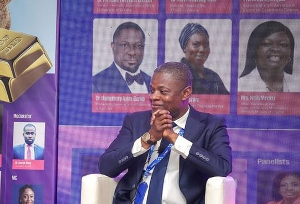Poverty, like malaria, has become a pandemic in Ghana and in other developing countries, especially in Sub-Saharan Africa. Why is Ghana so economically
backward and so slow to develop, even after many years of extricating herself from colonialism and imperialism?
Development, as perceived by Todaro and Smith (2012), is a multi-dimensional
process involving major changes in social structure, popular attitudes, and national institutions, as well as the acceleration of economic growth, the reduction of inequality, and the eradication of poverty. Development can also refer to both the qualitative and quantitative improvement in people’s living standards and in all horizons of human endeavor, including education, health, access to information, infrastructure, housing, and employment opportunities in the modern sector.
The reciprocal of the above constitutes underdevelopment. Many theories have
been put forward to explain this peculiar plight of developing countries in Africa. One common theory is that dark-skinned people living in Africa and elsewhere have been eternally cursed to be poor. This theory is sometimes referred to as the ‘Curse Myth," a theory that has no shred of scientific evidence to support it. Perhaps it has been concocted by the fair-skinned race to enhance their feeling of superiority and to justify their treatment of black-skinned people.
Apart from the Curse Myth, there is another theory, dubbed the Torrid-Zone Dwellers
Theory, which claims that people who live in the tropics are being adversely
affected by the heat of the sun. The proponents claim that the tropical climate is so enervating that the brains of the dwellers in that zone are enfeebled and, in consequence, rendered incapable of deep, sustained thinking.
Apparently, there is no palpable evidence backing these spurious theories. What,
then, are the reasons why Ghana, a country that brags of being the first black
nation to have emancipated herself from colonial rule some sixty-seven years ago, a country endowed with enormous resources, struggling to develop?
Notable among the many researchers who have attributed Africa’s slow development to colonization is Akinwande Oluwole Babatunde Soyinka, the first black man to win the Novel Prize in Literature. Soyinka averts that Africa’s underdevelopment is the outcome of the “twin evils of slavery and colonialism inflicted by the Western world.”. According to him, slavery and colonialism were two monumental historical events that dislocated Africa and aborted the continent’s social, political, economic, and technological development.
In the case of Ghana, it would be very dishonest to continue to attribute our fiascos to slavery and colonial rule when our country was freed from these historical events more than six decades ago. In the abundance of water, it is only a fool who complains of thirst.”. Why is Kwame Nkrumah’s Ghana wallowing in poverty when we are surrounded by rich natural resources—gold, diamond, bauxite, manganese, timber, crude oil, fertile land, lithium, just to mention a few?
By all considerations, Ghana’s slow development can be undeniably attributed to
corruption and ineptocracy. Corruption in Ghana has been a canker that has eaten into the greater portion of our lives as a nation: education, health, governance, judiciary, and what have you. There have been numerous evidential reports on corruption and corrupt practices among public sector workers in this 4th Republic, which the government of the day refused to investigate, retrieve the money involved, and punish the perpetrators. To mention but a few, the NCA Spy Equipment Saga, PDS Scandal, SSNIT Software Scandal, GYEEDA Saga, Ghana Gas Helicopter Procurement Scandal, and Central Medical Stores Saga. [CDD-Ghana, Case Updates].
Corruption depletes national resources and diverts desperately needed funds from
education, healthcare, and other social services dislocating the economy and
condemning the overwhelming majority of the people to illiteracy, hunger, poverty, misery, diseases, and death. (Oladipo, 2014)
Apart from Dr. Kwame Nkrumah’s CPP government in the first republic, which
exhibited a conscious effort to develop Ghana to an enviable level, Ghana has been struggling to develop due to the various incompetent elected governments
(Ineptocracy). Instead of developing the natural resources at our disposal like how Dubai has used only crude oil to develop their nation and their economy, our so-called leaders have been plunging Ghana into impolitic contracts with foreigners to exploit our resources and degrade our environment while we (Ghana) receive just a meager share.
Instead of consciously building infrastructure, fund research to power and
fuel technology, innovation, and modernization, Ghanaian politicians, such as Moses Mungo, said, "They have turned themselves into thieves in government houses.” Our present and past leaders have been nonchalant about the fact that a large portion of the citizens have been poor, unemployed, and marginalized. It is rather unfortunate that politics, which is supposed to be an avenue and an opportunity to develop the nation and make life better for the people, has become a medium for wealth creation. Today, even successful businessmen and women, medical doctors, and university professors are leaving their consulting rooms and lecture halls to become politicians.
They (leaders) give sensitive and prestigious positions to their family members and pay themselves fat salaries and allowances as the country continues to ‘bleed’ economically. It is ridiculously alarming that the disposition of the Ghanaian politician is self-aggrandizement and self-perpetuation in power. To achieve this, Ayitey (2002) succinctly pointed out, “African leaders take over and subvert every key institution of government to serve their needs and not those of the people.” They compromise the aid service, judiciary, military, media, and even the banking sector and various institutions.
There are no qualms at all about exogamous factors such as colonialism, neo-
colonialism, the slave trade and coup d’état have hindered Ghana’s socio-economic and technological development. On the other hand, endogamous causes like Ineptocracy, corruption, and lootocracy, among others, have rendered Ghana
economically and technologically immobile. Large sums of money, sufficient
enough to catapult Ghana to an enviable economic and technological plateau if
channeled into economically productive ventures, end up in private pockets yet
past and current leaders shamelessly continue to globe-trot, with cap in hand.
begging for aid.
Thus, several decades after extricating ourselves from the strings of colonialism and imperialism, most Ghanaians do not have access to reliable
electricity, potable water, good road networks, quality healthcare, and quality education, just to mention a few. Until we get selfless, dedicated, and committed leaders with clear vision and the courage to pursue them without fear of losing elections, chronic poverty and underdevelopment will continue to persist in this great but dormant nation.
Opinions of Saturday, 16 March 2024
Columnist: Prince K. Adofo



![Former Vice President Dr. Bawumia [L] and the victim Former Vice President Dr. Bawumia [L] and the victim](https://cdn.ghanaweb.com/imagelib/pics/728/72886667.295.jpg)











